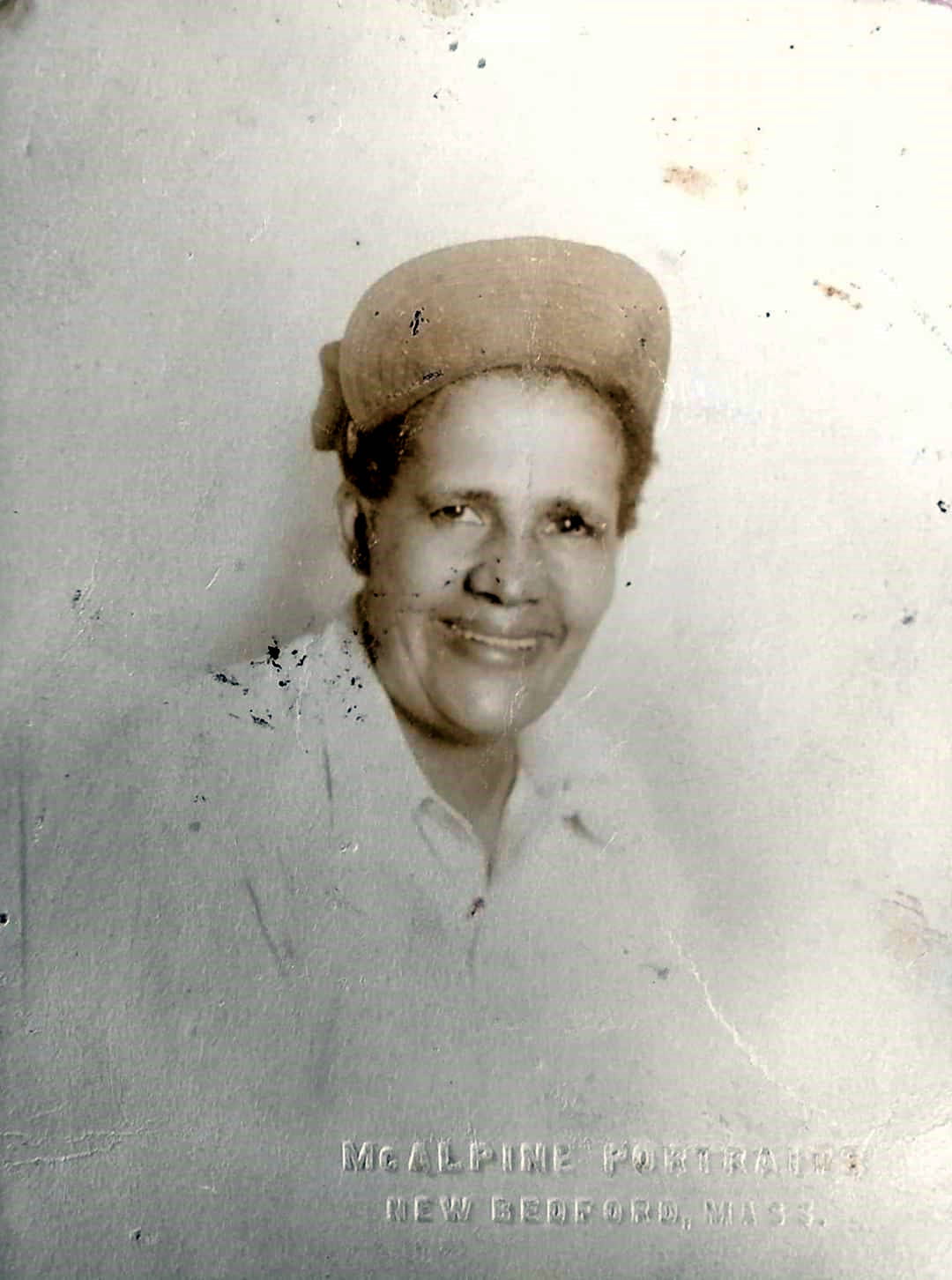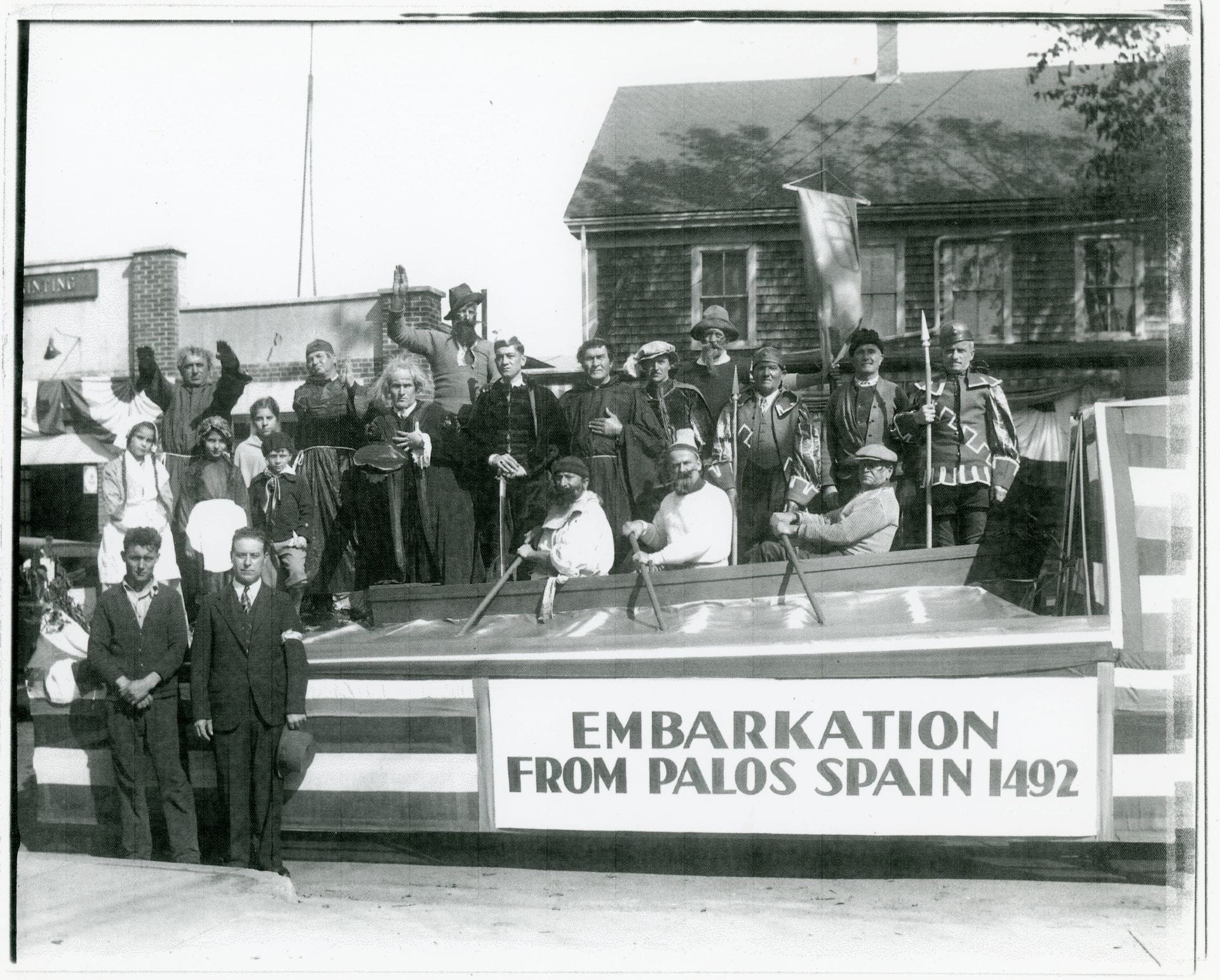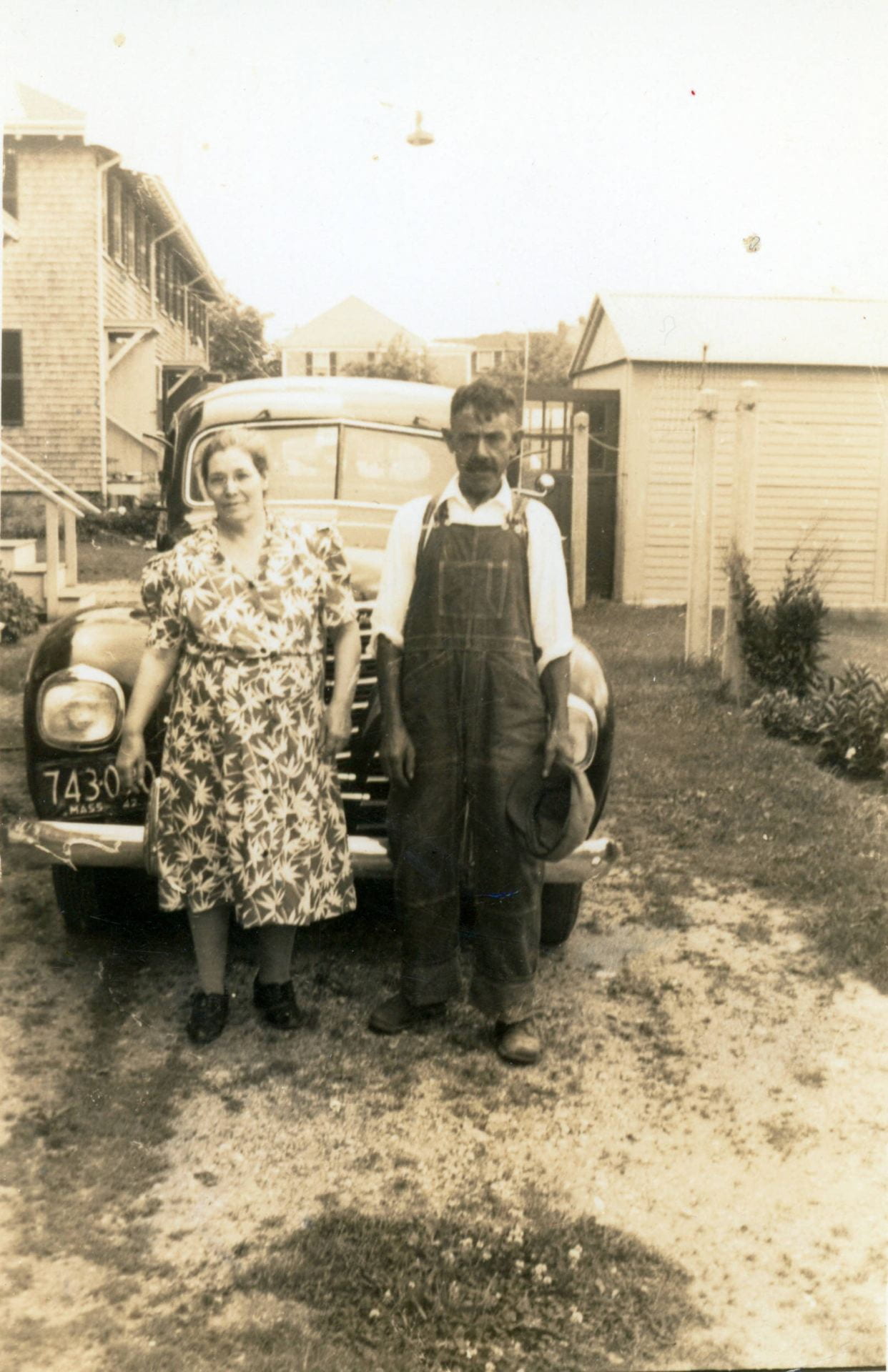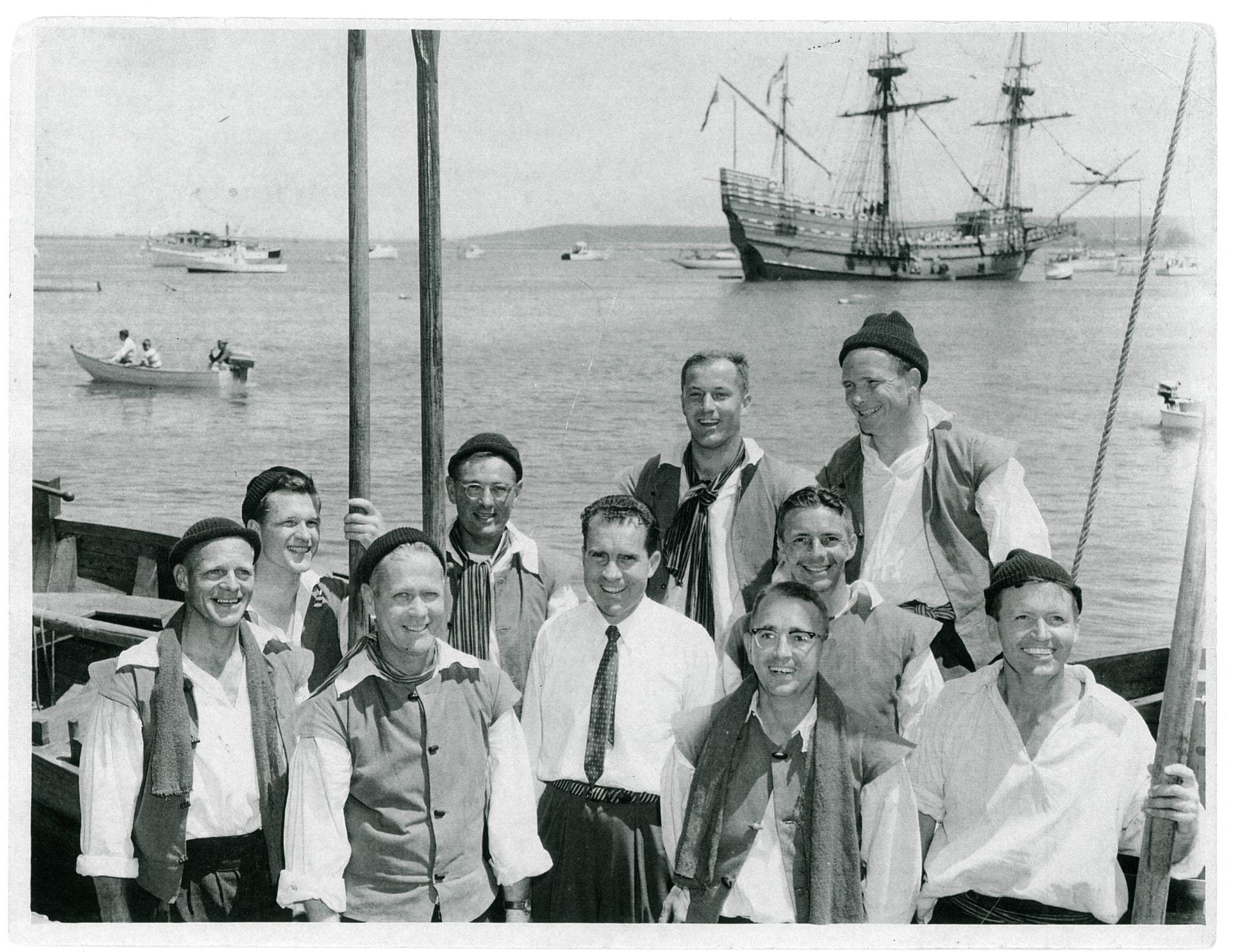Authors: Carolyn Goldstein, Public History and Community Archives Program Manager and Kayla Allen, Graduate Assistant
The photographs, stories, and videos gathered at the Plymouth Mass. Memories Road Show are available online now for research.

My three at the Cranberry Festival, 2015. ‘My kids love this event. We went for several years. I love this photo because it is just so quintessential Southeastern Massachusetts. Pictured, from left to right: Zachary Burrey, Olivia Burrey, and Eliza Burrey. Location: A.D. Makepeace Company.’ Contributor: Julie Burrey.
Hosted by the Plymouth Public Library on Saturday, November 9, 2019, the event was coordinated by the library in cooperation with the Plymouth County Convention & Visitors Bureau and the Plymouth County Commissioners. Additional partners included the Plymouth Antiquarian Society, Pilgrim Hall Museum, Town of Plymouth Archivist, Destination Plymouth, Plymouth 400, and Plymouth Access TV. More than two dozen local volunteers—many from Plymouth 400—joined a team of UMass Boston staff members, graduate students in public history and archives, and “Roadies” to welcome over 100 adults and children with connections to the coastal town located south of Boston.

First woman worker, Quincy shipyard, early 1940s. ‘Verna May Harding was born in 1905 on the Herring Pond Tribal Reservation lands in what is now called Bournedale and Cedarville in Plymouth. She lived there her entire life of 89 years. Along with her sister Phyllis and other female Herring Pond Wampanoag Tribal cousins, she was one of the first women to even work at the Quincy shipyard, right alongside the men. This is her Quincy shipyard photograph. Pictured: Verna May Harding.’ Contributor: Melissa Ferretti.
Contributors shared photographs and stories from the Herring Pond Wampanoag Tribe, the original inhabitants of modern-day Plymouth, as well as from families descended from colonial settlers who arrived on the Mayflower in 1620. A number of community members contributed photographs and stories chronicling their immigrant heritage, including accounts of personal and family connections to Italy, Russia, and the Azores among other countries. Many of these materials provide evidence of religious and cultural organizations established by these cultural groups in Plymouth beginning in the late 19th century.

Columbus Day parade, 1934. ‘During the depths of the Great Depression the community tried to present events which would help morale and keep up spirits. This parade, as far as I know, was the only time it was organized for this holiday. Much of the planning and execution were undertaken under the auspices of the Italian social clubs which were based in North Plymouth. The picture shows the submission from the appropriately-named Cristoforo Colombo Club.’ Contributor: Enzo Monti.
Several contributors shared memories of their experiences at work in Plymouth and the surrounding area. They submitted photographs and stories of themselves and their ancestors on the job on farms, in family businesses such as butcher shops and restaurants, in libraries and historical societies and even in the local Quincy shipyard.

Cordage Terrace 1941 Plymouth. ‘They are my grandfather and grandmother Santos. They are from the island of San Miguel in the Azores. Manuel was a butcher, farmer, and mailman. He had a butcher shop in Plymouth with his cousin Red Wing. They made Portuguese sausages—linguica, chorizo, blood sausage, and head cheese. My grandmother’s father was chief of police on the island. Pictured, from left to right: my grandmother Mary Santos and my grandfather Manuel Santos.’ Contributor: Dennis Soares.
To document connections to the public memory of the arrival of Pilgrims from England in 1620, many contributors brought photographs of visits to landmarks such as Plymouth Rock or attendance at commemorative events such as the arrival of the Mayflower II in 1957 and the annual Pilgrim Progress reenactment. Still other participants recounted participation in the town’s emergence as a famous tourist attraction in the late 20th century including interpreting and learning about 17th-century life at the Plimoth Plantation museum (now Plimoth Patuxet) and planning the 400th anniversary of the pilgrim landing.

‘The crew that rowed the Shallop ashore, 1957. After weeks of training, my father along with friends and six of his family members rowed out to meet the Mayflower II when she sailed from Plymouth, England and arrived in Plymouth, Massachusetts. Pictured, from back to front, left to right: Benjamin Brewster, Lothrop Withington, Jr., Paul Withington, William Stearns, Jr., United States Vice President Richard Nixon, George Davis, Russell Fry, Jr., Russell Coffin, Robert Briggs, and Spencer Brewster.’ Contributor: Russell Fry.

‘Colonial camp at Harlow House, 1990s. I’ve been a history nerd since the beginning. While other kids dreamed about space camp, I was thrilled to attend “Colonial Camp.” I churned butter, learned how to work a loom, and made my own tussie mussie. Plymouth is a wonderful place for a history-lover to grow up!’ Contributor: Sarah (Mathews) Collins.
Event participants also shared memories of enjoying the natural environment in Plymouth and the surrounding area with family and friends, contributing photographs and stories of such favorite local places as beaches, parks, and cranberry bogs. Still other individuals aimed to remember their families and communities with images of weddings, anniversaries, family gatherings and trips, school activities, local organizations, and everyday life in the town.

Backyard chicken coop, 2009. ‘An experiment one summer—we helped a neighbor raise the little peeps to become hearty. Pictured, from left to right: my children Anna Bishop, Madeleine Bishop, and Charles Bishop. Location: Ellisville.’ Contributor: Maria Bishop.
Browse the Plymouth Mass. Memories Road Show collection.
The Mass. Memories Road Show is a statewide, event-based participatory archiving program that documents people, places and events in Massachusetts history through family photographs and stories. In partnership with teams of local volunteers, we organize public events to scan family and community photographs and videotape “the stories behind the photos.” The images and videos are indexed and incorporated into an online educational database. Since its launch, the project has gathered more than 12,000 photographs and stories from across the state. It is supported in part by the Patricia C. Flaherty ’81 Endowed Fund at UMass Boston.
University Archives & Special Collections in the Joseph P. Healey Library at UMass Boston was established in 1981 as a repository to collect archival material in subject areas of interest to the university, as well as the records of the university itself. The mission and history of UMass Boston guide the collection policies of University Archives & Special Collections, with the university’s urban mission and strong support of community service reflected in the records of and related to urban planning, social welfare, social action, alternative movements, community organizations, war and social consequence, and local history related to neighboring communities. To learn more, visit blogs.umb.edu/archives.